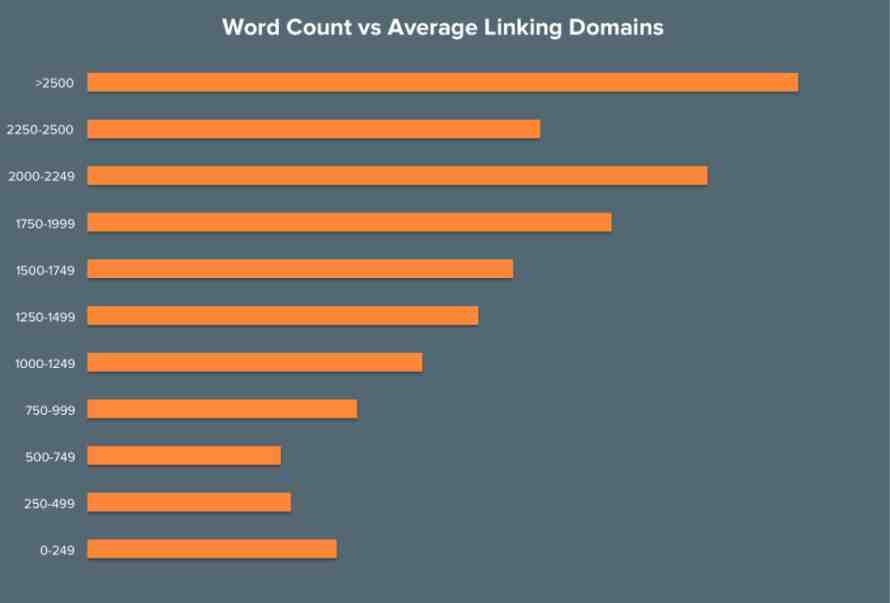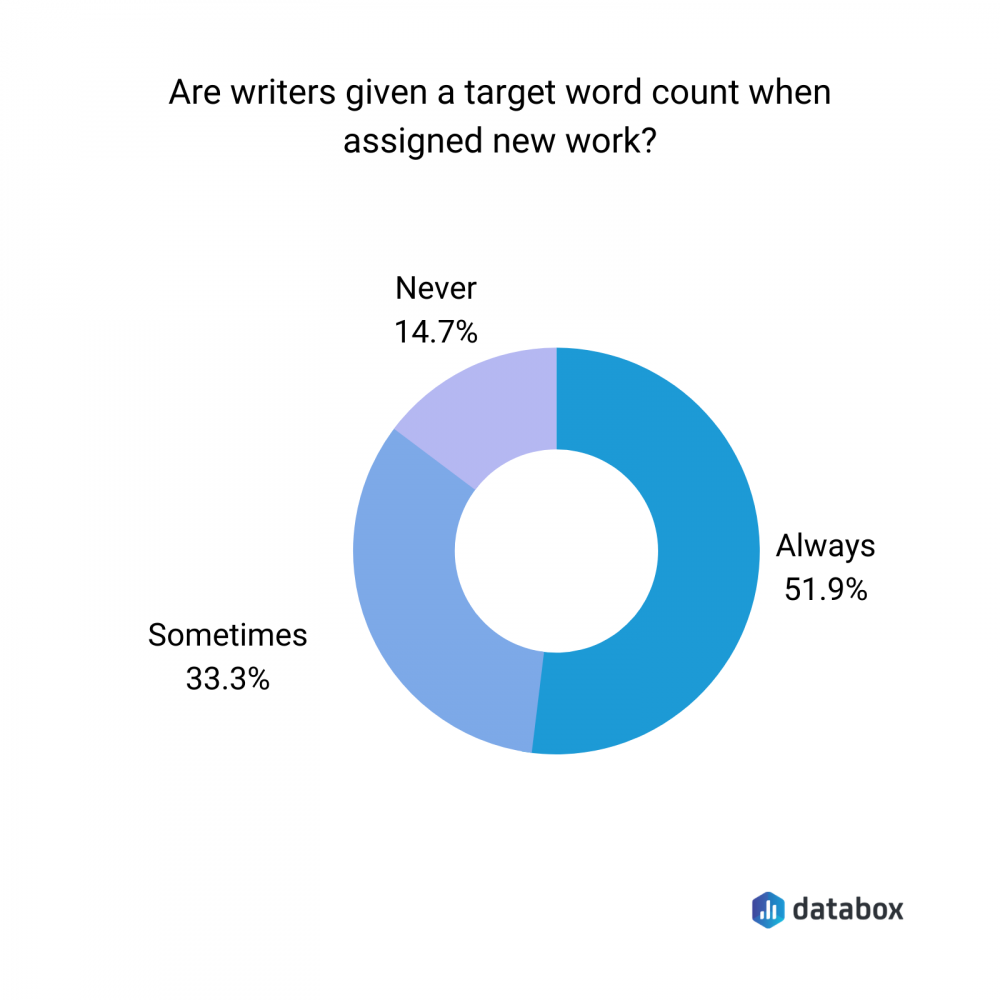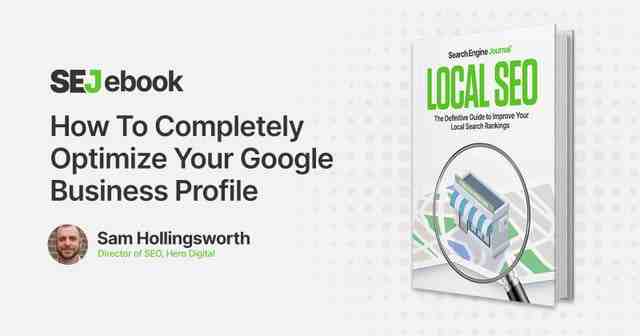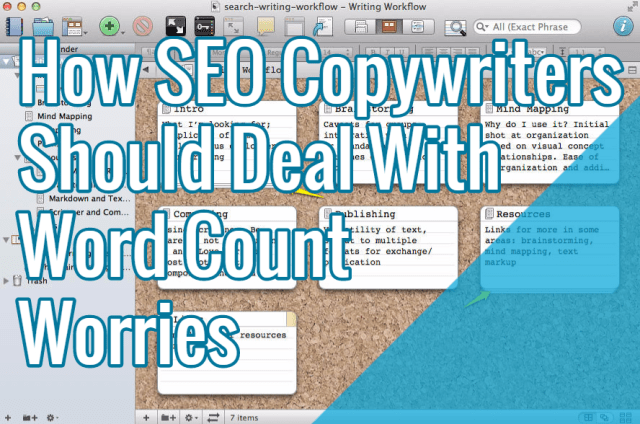In the world of search engine optimization (SEO), the top copywriting strategies are constantly changing as we adapt to the updates of the Google algorithm.
You may have met digital marketing experts who offer guidance on how to improve your search rankings by following their word count recommendations.
There have been several debates around whether word count is important in SEO, and it’s time to get to the end of it.
Is Word Count A Ranking Factor?

Google’s John Mueller has confirmed that word count is not a ranking factor for the search algorithm.
Specifically, he says that “just adding blind text to a page does not make it better.”
Instead of looking at the number of words on a page, Google’s algorithms search for relevant, original, and high-quality content.
Why Long-Form Content Tends To Rank Higher

Despite Google’s confirmation that word count does not directly affect rank, you can still find many articles and keyword tools that offer longer word counts.
So, why do tools like Yoast and Clearscope offer recommended word numbers when the numbers on the page do not directly affect rank?
There are several reasons a higher word count can indirectly improve your ranking.
Some of these tools base word count recommendations on competitive analysis.
Longer content writing makes it easier for the Google algorithm to find out what your page is.
Well-written comprehensive pieces also position you as the authority on the topic and allow you to rank long tail keyword variants.
How To Determine The Right Word Count For Your Content

There is no rule of thumb to follow when it comes to word limits for SEO.
Instead, you can look at your keyword research, competition, and past performance to determine your content in the best word count range.
Start With Your Keyword Strategy
You can create a new piece of content with a single target keyword in mind.
But a study by Ahrefs found that longer content is more likely to rank in the top 10 for different keywords.
By increasing the length of your article, you can cover your primary topic from different angles, which means you can rank for more keywords.
Longer articles in particular have a higher chance of ranking for long tail variations of your primary keyword, with less competition and higher conversion rates.
For example, long tail variants of “Microsoft Word” may include “Microsoft Word for Mac” and “Microsoft Word Resume Template”.
Screenshot of the search for [Microsoft Word], Google, March 2022
So if you have identified long tail keywords that you want to count, consider increasing your word count to address these more specific queries.
Check Out The Competition
You can also use word count as a benchmark metric when comparing your content with the competition.
Many keyword research and content optimization tools deliver the word count of the top performing articles for each particular keyword.
Screenshot by Clearscope.io, March 2022
If you do not know how long an article should be, the word count of the current top performers is a good place to start.
Pay Attention To Search Intent
In addition to seeing what the competition is doing, you should always pay attention to the search term that is associated with your target keyword.
Intent helps define what makes content useful and relevant to the user.
In other words, think about what your target audience wants when they enter a keyword into the search bar.
If they want comprehensive information, you can count on your competitors to hit or exceed the word count.
Conversely, you can choose to create shorter content that gets to the point faster for keywords where the audience wants quick responses.
In terms of word count, search intent can help you decide whether you want to track the competition lead or differentiate your content by length.
Review Your Performance
Finally, you can look at your past performance to discover which content length works best for you.
Review your SEO performance regularly and see if trends arise.
Is there a word sweet spot where you tend to rank higher?
Or maybe you have some shorter articles that do not rank as high as you would like.
In this case, try going back to your keyword research and find out how you can extend the content with more useful and relevant information.
Additional Factors That Affect Your Ranking

You can use word count to improve your keyword research and competitive strategy, but it will not be the ultimate deciding factor for search algorithms.
If you want to improve your SEO performance, here are some additional writing tips to consider:
Content Structure
Google looks at structural elements, like heading tags, as a way to better understand your content and send the right users to your site.
Formatting your content with a clear, logical structure for your content also improves the readability and usefulness of the people who search on Google.
Image created by the author, March 2022
Instead of just filling your section tags with keywords, think of the best experience for your readers.
Use sections to break up large chunks of text and make it easy for anyone to find the information they want.
Quality Of Information
Information quality remains a top determining factor for search engine results page (SERP) ranking.
In other words, adding a bunch of fluff to increase your total word count will not help you.
According to Google, the search algorithm prioritizes reliable information and pages that “show expertise, authority, and trust in a particular topic.”
Backup statements and claims with links to relevant external data sources to improve your content quality.
You should also ensure that your content is original by doing plagiarism checks and avoiding duplicate content on your domain.
Visual Support And Imagery
Images and other visual aids can help you show the relevance of your target keyword, another primary factor that the algorithm uses.
For example, if you are targeting the keyword “Harry Potter”, Google will search for relevance signals such as character images or video clips related to books or movies.
Adding media can enhance the user experience by breaking up large blocks of text and providing visual learning.
High quality original images also allow you to rank on Google Images.
Optimize For Special Content Blocks
Google continues to make its SERP pages more intuitive and browsable through specific content types and featured snippets.
These content resource blocks appear at the top of SERP pages and often give users a quick response to their queries.
Screenshot of the search for [best places to live in the US], Google, March 2022
Optimizing your content for featured snippets can increase your content to zero position, above all other results.
About 70% of all featured snippets are paragraph types, which could be an excellent place to experiment.
Aim to answer the keyword question with 50-250 characters.
Final Thoughts: Why Is Word Count Important For SEO Strategy?

Optimizing content for SEO is not as easy as running through a checklist of keyword mentions and article lengths.
Finally, you need to understand the audience of each keyword and publish the content that best serves their needs.
Word count is not the factor that drives your content to the top, but it can help you define what is “relevant and useful” for a particular keyword.
Use the writing advice and questions above to find your optimal starting point for word count, but keep in mind that all of your words offer value to your readers.
Featured Image: Wall to Wall / Shutterstock
Most experts agree that blogging two to four times a week is the best way to see increased traction of your content. This equates to somewhere around eleven to sixteen posts a month, depending on where you are at the current times of the week when you post new content.
How many words should a landing page be?
The minimum requirement for a landing page is 500 words as this is long enough to provide adequate information to make your case about the credibility and benefits of your product while influencing the reader. As a guide, you should consider a few things about the power to include more content on a landing page.
Should the landing page be long or short? The longer side led to a 52% increase in sales. Image via conversion rate experts. Short landing pages work best if the lead already knows what they are looking for and your site presents the exact solution without fluff or filler.
How much content should a landing page have?
How many landing pages should you have? Landing pages focus on just one destination, which means you should have a landing page for each destination. For example, you want a landing page for a free trial, a landing page for webinar registrations, a landing page for ebook downloads, and so on.
How long should a landing page be?
The average session duration for desktop users is 150 seconds. For Mobile, 72 Seconds. Short form post-click landing pages tell a simple story, and they do so quickly, so that the visitor gets his or her questions answered quickly.
What should a good landing page include?
2. Landing pages must contain the following elements
- A title and (optional) subtitle.
- A brief description of what is on offer.
- At least one supporting image or short video.
- (Optional) Support evidence elements such as testimonials, customer logos, or security badges.
How many pages should a landing page have?
How many landing pages should I have? According to research, business websites with 10 to 15 landing pages increase conversions by 55%. Additionally, websites with over 40 landing pages increase conversion by over 500%.
How long should landing pages be?
The average session duration for desktop users is 150 seconds. For Mobile, 72 Seconds. Short form post-click landing pages tell a simple story, and they do so quickly, so that the visitor gets his or her questions answered quickly.
How many pages should a landing page have?
How many landing pages should I have? According to research, business websites with 10 to 15 landing pages increase conversions by 55%. Additionally, websites with over 40 landing pages increase conversion by over 500%.
Can a landing page be too long?
The bigger the query, the longer the page. If you ask for an email address in exchange for a free ebook, your landing page will probably not be too long.
How many hours does it take to write a landing page?
Landing Page (35 hours) It is designed to promote or sell a product or service and is intended to motivate visitors to take action. As a result, the discovery, content creation and reviews take less time than usual. The web design time estimate ranges within 15-80 hours.
Is making a landing page hard?
Expert Tip: One of the biggest advantages of landing pages is that they are relatively easy to make. This means you can create more than one landing page and test the performance of different designs, using A / B testing. This technique takes your online marketing to a much more professional level.
How many hours does it take to write a website?
To conclude, expect a 6-8 page template website to take 40-100 hours to complete and think twice before you start asking for changes or worrying about minor flaws. You may notice it, but your website visitors probably do not trust your agency’s judgment.
How much does it take to create a landing page?
A quality landing page costs $ 1,000-1,500 in many cases. Creating a strategic landing page can cost around $ 1,500-2000. A dynamic landing page costs from $ 2,000 to $ 5,000. In any case, the cost of landing side depends on the complexity of the task, stack of technologies and your business goals.
How long does it take to write a landing page?
Landing â € “from 1â €“ 2 weeks Usually this is a small company website of the company, its “face”. Landings are in most cases used as sales pages of a particular service or product. They contain some information about the company, contacts, and also have limited functionality, so that they can be developed fairly quickly.
Who is most searched person on Google in World 2021?
Here are the top 10 most searched people in the US on Google’s 2021 search year:
- Alec Baldwin. …
- Travis Scott. …
- Simone Biles. …
- Derek Chauvin. …
- Morgan Wallen. …
- Henry Rugs III. …
- Pete Davidson. …
- Shailene Woodley.
What is Google doing more in the world? Google analyzed the billions of search queries it processed every day, and identified the terms that had the highest spike this year compared to 2019. Coronavirus dominates top searches this year.
What is the ideal word count for SEO in 2021?
For SEO, the ideal blog post length should be 2,100-2,400 words, according to HubSpot data. We averaged the length of our 50 most read blog posts in 2019, which yielded an average word count of 2,330.
Is SEO worth learning in 2021? The short answer is SEO is very effective – not only for generating traffic but also leads and sales. Do not worry. The long answer includes research and data, not just empty statements. Most SEOs get caught up too much in search-specific metrics like SERPs (search engine results page), rankings and organic traffic.
Is 1000 words enough for SEO?
You have a higher chance of ranking on Google if you write long, high quality blog posts of 1000 words or more. We have experienced this for ourselves; We have written quite a few articles that are over 2500 words – our Shopify SEO ultimate guide has hit almost 9000!
Is 500 words enough for SEO?
Simply put: 500-700 word articles are not enough. They achieve nothing for users, and hardly anything for Google. They are better than nothing, but if you are serious about your organic traffic, you should seriously consider upgrading to a serious solution that will get the right results.
How many words do you need for SEO?
Forbes shows that an average of 600-700 words per page is optimal for SEO. Forbes also says that websites with less than 300 words per page are considered “thin” by Google’s standards and most likely do not rank as high in search.
What is the minimum word count for SEO?
And, generally speaking, Google tends to rank longer articles higher. “So at least 300 words, they think it takes to rank on Google. According to Google’s own webmaster trend analyst, John Mueller, he claims that a long text does not necessarily deliver better rankings.
Is 500 words enough for SEO?
Simply put: 500-700 word articles are not enough. They achieve nothing for users, and hardly anything for Google. They are better than nothing, but if you are serious about your organic traffic, you should seriously consider upgrading to a serious solution that will get the right results.
What is the minimum word count for SEO?
And, generally speaking, Google tends to rank longer articles higher. “So at least 300 words, they think it takes to rank on Google. According to Google’s own webmaster trend analyst, John Mueller, he claims that a long text does not necessarily deliver better rankings.
How many words are good for SEO?
Forbes shows that an average of 600-700 words per page is optimal for SEO. Forbes also says that websites with less than 300 words per page are considered “thin” by Google’s standards and most likely do not rank as high in search. Finding the best content strategy for SEO can be confusing at best.
Is 500 words good for SEO?
300 words minimum for SEO industry general consensus in 2018 shows that websites, blogs and articles in general (but not always) should be at least 300 – 500 words for the purpose of good SEO.
Is 500 words OK for a blog?
With these three things in mind, 500 words prove to be a good baseline. Blog posts might have been successful at 400, or 350, or 300 words, but 500 became a good break point where the post was more likely to rank than not, and these were affordable enough to potentially work in volume.
What is a good word count for SEO?
There is no one-size-fits-all word for SEO. However, we recommend counting at least 1,000 words for standard blog posts, 2,000 for long form content, and 300-500 for news or product pages. Finally, you should try to cover the topic in a meaningful and thorough way without using fluff or repetition.
Are long tail keywords better?
Focusing on long-tail keywords is a great SEO tactic. Long-tail keywords are keywords or keywords that are more specific – and usually longer – than more commonly used keywords. Long-tail keywords get less search traffic, but usually have a higher conversion value because they are more specific.
Are long tail keywords still relevant? Long tail keywords. Long-tail keywords have been used by experts who have been offering SEO services for some time, and it still works. Properly covered, it will withstand a great deal of adverse conditions.
What is a good long tail keyword?
Long-tail keywords are search terms that consist of 3-5 words and tend to be more specific to the user’s search intent. They are usually much easier to rank than more general keywords like “head keywords” or “head terms”.
What is considered a long tail keyword?
What are long-tail keywords, exactly? Long-tail keywords are longer and more specific keyword phrases that visitors are more likely to use when they are closer to a point of purchase or when using voice search. Most long-tail keywords have lower search volume than short or “head” keywords.
Which is better long tail or short tail keywords?
While long tail keywords are more targeted, they also deliver less traffic overall, and they can be very difficult to find if you are not accustomed to keyword research. On the other hand, short tail keywords are broader terms – often the first thing a customer thinks of when searching for your product or service.
What is a long tail keyword examples?
Long tail keywords are search terms with more word counts. Their length makes them more specific than searches with fewer words. “Buy breathable running socks” (4 words) is an example of a long tail keyword, while “Buy Socks” is a short tail keyword.
What is a disadvantage of long-tail keywords?
Long tail keywords have low search volume The low search volume of long tail keywords is the only significant disadvantage of this type of search term.
What is an advantage of short tail keywords?
Attracting a higher volume of website visitors to your website is the main advantage of counting short tail keywords in your SEO strategy. These broader keywords are also much more competitive.
Which is better long-tail or short tail keywords?
While long tail keywords are more targeted, they also deliver less traffic overall, and they can be very difficult to find if you are not accustomed to keyword research. On the other hand, short tail keywords are broader terms – often the first thing a customer thinks of when searching for your product or service.
Are long-tail keywords important?
With long tail keywords, you can attract more high quality traffic to your website, which is more likely to lead to conversions. During the customer journey, long tail keywords become more important as their journey evolves.
What is the benefit for long-tail keywords?
Long-tail keywords get less search traffic, but usually have a higher conversion value because they are more specific. They allow you to gradually get more traffic to your site and be found by new and motivated audiences.
Should I use long-tail or short tail keywords?
When searching for more specific results, web users tend to type a longer query (ie: a long-tail keyword) into Google or another search engine to get more relevant results. In contrast, if they are only looking for a general topic, then they are more likely to enter a short tail request of one or two words.
Are long-tail keywords better?
Focusing on long-tail keywords is a great SEO tactic. Long-tail keywords are keywords or keywords that are more specific – and usually longer – than more commonly used keywords. Long-tail keywords get less search traffic, but usually have a higher conversion value because they are more specific.
Which is better long-tail or short tail keywords?
While long tail keywords are more targeted, they also deliver less traffic overall, and they can be very difficult to find if you are not accustomed to keyword research. On the other hand, short tail keywords are broader terms – often the first thing a customer thinks of when searching for your product or service.
What is an advantage of short tail keywords?
Attracting a higher volume of website visitors to your website is the main advantage of counting short tail keywords in your SEO strategy. These broader keywords are also much more competitive.

